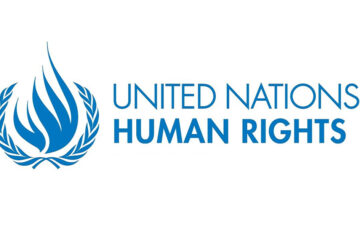Ulaanbaatar, Mongolia — On 4th and 5th May 2015 the Government of Mongolia hosted the 5th Freedom Online Conference (FOC) in Ulaanbaatar. Over 200 delegates from more than 60 countries representing governments, private sector and civil society met to discuss current threats to freedom online and opportunities to strengthen the protection of fundamental freedoms and human rights. The overarching theme for the Conference is “Internet Policy Making – Best Practices for Promoting Online Freedom.”
Founded in 2011, the Freedom Online Coalition is a partnership of governments working to advance internet freedom. Today, its membership has grown to 26 member-countries from the Europe, the Middle East, the Americas, Africa, and Asia.
It was the first time that the FOC is held in Asia with Mongolia as the host. The delegates were welcomed to the conference by HE Lundeg Purevsuren, the Minister of Foreign Affairs of Mongolia. This was followed by a keynote message from the Mongolian President himself, H.E. Tsakhia Elbegdorj. The President gave a brief about the internet situation in his country. He also underscored the importance of online freedom. “It is a global commodity that did not come by accident but by design,” he says. He added that the strength of the government comes from the people, and thus they should be allowed freedom. He also advised other nations that national security should not be used to restrict freedom of expression.
In between plenary sessions, workshops were organized into three tracks: An Internet Free and Secure; Digital Development and Openness; and, Privacy and Transparency Online. FMA’s Gender and ICT Coordinator, Liza Garcia, was invited to speak on the workshop session “Towards Shared Understanding to Realize a Free and Secure Internet for All” organized by the Association for Progressive Communications (APC) and Citizen Lab. Liza presented the findings from 7-country FLOW research on technology –related violence against women, highlighting the cases of women who have experienced online violence. The research looked into domestic legal remedies and corporate redress mechanisms as means to access justice. She also shared the recommendations of the research that included, among others, improvement of existing legislation, engagement with private companies (that include ISPs, social media companies, telcos), strengthening of women’s networks, and addressing the root causes of violence against women.
The issue of cybersecurity was one of the main discussions. Chris Riley of Mozilla said that the internet of things is a potential security threat that has to be looked into. Ron Deibert of Citizen Lab is concerned about the current trend in territorial control, and mass surveillance as they impinge on the human rights of individuals. Concerns about the role of private corporations also arose. Rebecca McKinnon said that companies are the ones making designs, technology and business decisions that have an impact on the human rights of users. More and more, we are trusting our data and our private lives, to private companies. But how are these data being used? The issues of transparency, accountability, internet liability, policy developments are things that should be looked into.
It is interesting to note that gender concerns are being mentioned, and there is now more recognition of the need to address gender issues such as online harassments and threats. The Secretary General of the Community of Democracies, Maria Leissener, noted that the situation of vulnerable groups in the internet, including women, is disturbing. Dunja Mijatovic of the OSCE says they are alarmed by the online threats and harassment that women journalists are getting. The representative from the Swedish government said there is a need to bridge the digital gender divide and have more women’s voices heard. Nina Nordstrom of Finland said that addressing gender issues is a pre-requisite to the realization of human rights.
The FOC is another space available to deepen one’s understanding of freedom online. What makes it different from other spaces is that member-states take the frontline and discuss how to further strengthen freedom online. However, as noticed by the other participants, some member-states do not walk the talk. They proclaim to be champions of human rights but there are those that enact laws that restrict freedom in the interest of ‘national security.’ For instance, France passed a law institutionalizing surveillance; Germany is spying on other governments; the UK is banning encryption.
As for the Philippines’ membership to the FOC, although the idea is already in the radar of the government, it is something that may not be calendared in the near future as there are many other pressing local concerns requiring urgent government attention, not to mention the forthcoming national elections slated in May 2016.
![]()



0 Comments